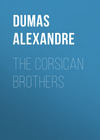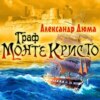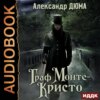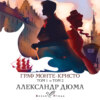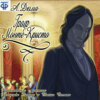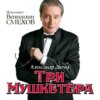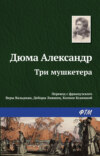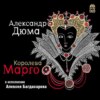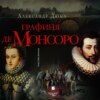Читать книгу: «The Corsican Brothers», страница 3
CHAPTER VI
ALTHOUGH it was only the beginning of the month of March the weather was beautiful, and we should have said that it was hot, had it not been for a refreshing breeze which carried with it a savour of the sea.
The moon was rising brilliantly behind Mount Cagna, and the cascades of light were falling upon the southern slope which separates Corsica into two parts, and in a measure forms two different nations, which are always at war, or at least, detest one another heartily.
As we mounted we could see the gorge in which the Tavaro was buried in profound darkness, impossible to penetrate, but we could view the calm Mediterranean, like a vast steel mirror extending into the horizon.
There are certain noises one hears only at night, for during the day they are overcome by other sounds, or it may be they awake only with the darkness, and these produced not upon Lucien, who was familiar with them, but upon me, who was a stranger to them, curious sensations of surprise, and awoke in me a powerful interest in all that I saw.
When we reached the place where the path united with another – one going up the mountain direct, and the other to the right, Lucien turned to me and said —
“Are you anything of a mountaineer?”
“Yes, a little, as far as walking goes.”
“You are likely to get giddy, then.”
“I am afraid so. The precipice has an irresistible attraction for me.”
“Then we had better take this foot-path where there are no precipices, but merely rough walking.”
“I am quite equal to that.”
“Very well, then, we have three-quarters of an hour’s walk before us.”
“Let us take the path.”
Lucien then went first, and crossed through a little oak wood, into which I followed him.
Diamond trotted fifty or sixty paces away, beating right and left, and occasionally coming back to us, wagging his tail as much as to inform us that we might trust to him and continue our route in safety.
I saw that as some people like to possess a horse, equally for riding or driving, so Diamond had apparently been trained to hunt the biped or the quadruped, the bandit or the boar. I did not wish to appear altogether strange to Corsican manners, so I said as much to Lucien.
“You are mistaken,” he replied; “Diamond is very useful in hunting men or animals, but he never chases bandits. It is the triple red of the gendarmes, the voltigeur, and the volunteer that he hunts.”
“Then I suppose Diamond is a bandit’s dog?”
“He is. He belongs to an Orlandi, to whom I sometimes used to send him into the country with bread, powder, bullets, or whatever he required. He was shot by a Colona, and the next day the dog came to me, for being accustomed to come to the house, he looked upon me as a friend.”
“But,” I said, “I fancied I saw another dog at your house.”
“Yes, that is Brucso, he possesses the same qualities as Diamond, only he came to me from a Colona who was killed by an Orlandi, and so when I pay a visit to a Colona I take Brucso, but when I have business with an Orlandi I take Diamond. If I were to make a mistake and loose them both together they would kill each other. So,” continued Lucien, with a bitter smile, “men can make it up, and will receive the sacrament together; the dogs will never eat from the same platter.”
“Well,” I said, laughing; “here are two regular Corsican dogs, but it seems to me that Diamond, like all other modest creatures, has gone out of earshot while we are speaking of him. I am afraid he has missed us.”
“Oh, do not be alarmed,” said Lucien, “I know where he is.”
“May I inquire where?”
“He is at the Mucchio.”
I was about to hazard another question, even at the risk of tiring my companion, when a long howl was heard, so lamentable, so sad, and so prolonged, that I shivered and stopped.
“What can that be?” I said.
“Nothing, it is only Diamond crying.”
“What is he crying for?”
“His master. Do you not know that dogs do not forget those they have loved?”
“Ah, I understand,” I said, as another prolonged howl rose through the night.
“Yes,” I continued, “his master was shot, you say, and I suppose we are approaching the place where he was killed?”
“Just so, and Diamond has left us to go to Mucchio.”
“That is where the man’s tomb is?”
“Yes, that is to say, the monument which passers-by have raised to his memory, in the form of a cairn; so it follows that the tomb of the victim gradually grows larger, a symbol of the increasing vengeance of his relations.”
Another long howl from Diamond’s throat made me shudder again, though I was perfectly well aware of the cause of the noise.
At the next turn of the path we came upon the wayside tomb or cairn. A heap of stones formed a pyramid of four or five feet in height.
At the foot of this strange monument Diamond was lying with extended neck and open mouth. Lucien picked up a stone, and taking off his cap approached the mucchio.
I did the same, following his example closely.
When he had come close to the pyramid he broke a branch from a young oak and threw, first, the stone and then the branch upon the heap. He rapidly made the sign of the cross.
I imitated him exactly, and we resumed our route in silence, but Diamond remained behind.
About ten minutes afterwards we heard another dismal howling, and then almost immediately Diamond passed us, head and tail drooping, to a point about a hundred paces in front, when he suddenly resumed his hunting.
CHAPTER VII
WE still kept advancing steadily, but, as Lucien had warned me, the path became rougher and more difficult.
I slung my gun over my shoulder, for I perceived that I should soon need both hands to assist me. As for my friend, he continued to press forward with the same easy gait, and did not appear to be at all inconvenienced by the difficult nature of the ground.
After some minutes’ climbing over rocks, aided by bushes and roots, we reached a species of platform surmounted by some ruined walls. These ruins were those of the Castle of Vicentello d’Istria, our destination.
In about five minutes we had climbed up to the last terrace, Lucien in advance, and as he extended his hand to assist me he said: —
“Well done, well done; you have not climbed badly for a Parisian.”
“Supposing that the Parisian you have assisted has already had some little experience in mountain scrambling?”
“Ah, true!” said Lucien, laughing. “Have you not a mountain near Paris called Montmartre?”
“Yes, but there are others beside Montmartre which I have ascended. For instance, the Rigi, the Faulhorn, the Gemmi, Vesuvius, Stromboli and Etna.”
“Indeed! Now I suppose you will despise me because I have never done more than surmount Monte Rotundo! Well, here we are! Four centuries ago my ancestors would have opened the portal to you and bade you welcome to the castle. Now their descendants can only show you the place where the door used to be, and say to you, ‘Welcome to the ruins!’ ”
“I suppose the chateau has been in possession of your family since the death of Vicentello d’Istria?” I said, taking up the conversation at the point at which we had dropped it previously.
“No, but before his birth. It was the last dwelling-place of our famous ancestress Savilia, the widow of Lucien de Franchi.”
“Is there not some terrible history connected with this woman?”
“Yes; were it daylight I could now show you from this spot the ruins of the Castle of Valle. There lived the lord of Guidice, who was as much hated as she (Savilia) was beloved, as ugly as she was beautiful. He became enamoured of her, and as she did not quickly respond to his desires, he gave her to understand that if she did not accept him in a given time he would come and carry her off by force. Savilia made pretence of consenting, and invited Guidice to come to dinner at the castle. Guidice was overcome with joy at this, and forgetting that the invitation had only been extorted by menace, accepted it, and came attended only by a few body servants. The gate was closed behind them, and in a few minutes Guidice was a prisoner, and cast into a dungeon, yonder.”
I passed on in the direction indicated, and found myself in a species of square court.
The moonlight streamed through the apertures time had made in the once solid walls, and threw dark and well-defined shadows upon the ground. All other portions of the ruins remained in the deep shade of the overhanging walls round about.
Lucien looked at his watch.
“Ah! we are twenty minutes too soon,” he exclaimed. “Let us sit down; you are very likely tired.”
We sat down; indeed, we extended ourselves at full length upon the grassy sward, in a position facing the great breach in the wall.
“But,” said I to my companion, “it seems to me that you have not finished the story you began just now.”
“No,” replied Lucien. “Every morning and every evening Savilia came down to the dungeon in which Giudice was confined, and then separated from him only by a grating, she would undress herself, and expose herself naked to him, a captive.’
“ ‘Giudice,’ she would say, ‘how do you expect that such an ugly man as you are can ever hope to possess all this?’
“This trial lasted for three months, and was repeated twice a day. But at the end of that period, thanks to a waiting woman whom he had bribed, Guidice was enabled to escape. He soon returned with all his men, who were much more numerous than those Savilia could assemble, and took the castle by assault, and having first possessed himself of Savilia, he subsequently exposed her naked in an iron cage at the cross roads in the Bocca di Cilaccia, offering, himself, the key to any passer by who might be tempted to enter. After three days of this public prostitution Savilia died.”
“Well,” I said, “it seems to me that your ancestors had a very pretty idea of revenging themselves, and that in finishing off their enemies with dagger or gunshot their descendants have in a manner degenerated!”
“Without mentioning that the day may come when we shall not kill them at all!” replied Lucien. “But it has not come to that yet. The two sons of Savilia,” he continued, “who were at Ajaccio with their uncle, were true Corsicans, and continued to make war against the sons of Guidice. This war lasted for four hundred years, and only finished, as you saw, by the dates upon the carbines of my parents, on the 21st September, 1819, at eleven o’clock A.M.”
“Oh, yes, I remember the inscription; but I had not time to inquire its meaning, as just then we were summoned to supper.”
“Well, this is the explanation: Of the family of Guidice there remained, in 1819, only two brothers. Of the de Franchi family there remained only my father, who had married his cousin. Three months after that the Guidice determined to exterminate us with one stroke. One of the brothers concealed himself on the road to Olmedo to await my father’s coming home to Sartène – while the other, taking advantage of his absence, determined to attack our house. This plan was carried out, but with a different result to what had been anticipated. My father, being warned of the plot, was on his guard; my mother, who had also got a hint of the affair, assembled the shepherds, &c., so that when the attack was made the intended victims were prepared for it – my father on the mountains, my mother in the mansion. The consequence was that the two Guidici fell, one shot by my father, the other by my mother. On seeing his foe fall, my father drew out his watch and saw it was eleven o’clock. When my mother shot her assailant she turned to the timepiece and noticed that it was also eleven o’clock. The whole thing had taken place exactly at the same moment. There were no more Guidici left, the family was extinct, and our victorious family is now left in peace; and considering we carried on a war for four hundred years, we didn’t want to meddle with it any more. My father had the dates engraved upon the carbines, and hung the pieces up on each side of the clock, as you saw. Seven months later my mother gave birth to twins, of whom one is your very humble servant, the Corsican Lucien; the other, the philanthropist, Louis, his brother.”
As he ceased speaking, I noticed a shadow of a man accompanied by a dog projected in the doorway.
The shadows were those of the bandit Orlandi and his friend Diamond.
At that moment the village clock of Sullacaro was heard striking nine with measured strokes.
Evidently the Orlandi was of Louis XV.’s opinion, that punctuality is the politeness of kings!
It would have been impossible to have been more exact than was that king of the mountain, with whom Lucien had appointed a meeting at nine o’clock.
We both rose from our reclining posture when we saw the bandit approaching.
CHAPTER VIII
“YOU are not alone, Monsieur Lucien,” said the bandit.
“Do not let that disturb you, Orlandi. This gentleman is a friend of mine, who has heard me speak of you, and wished to pay you a visit. I could not think of refusing him that pleasure.”
“Monsieur is welcome to the country,” said the bandit, bowing as he advanced towards us.
I returned his salute with the most punctilious politeness.
“You must have been waiting here some time,” continued Orlandi.
“Yes, about twenty minutes.”
“Quite so. I heard Diamond howling at Mucchio, and he has been with me quite a quarter of an hour since then; he is a good and faithful dog, is he not, Monsieur Lucien?”
“Yes, indeed he is, Orlandi,” replied Lucien, as he patted the animal.
“But,” said I, “since you knew that Monsieur Lucien was here, why did you not come sooner?”
“Because our appointment was for nine o’clock,” said the bandit, “and it is just as unpunctual to be a quarter of an hour too soon as to arrive a quarter of an hour too late.”
“That is meant for a hit at me, Orlandi,” said Lucien, laughing.
“No, sir; you no doubt have your reasons; besides you have a companion, and it is likely on his account you may have started earlier, for I know your punctual habits, Monsieur Lucien, and I know also that you have been good enough to put yourself to inconvenience on my account frequently.”
“Oh, do not say anything about that, Orlandi; this will probably be the last time.”
“Have we not some few words to exchange upon that subject, Monsieur Lucien,” said the bandit.
“Yes, if you will have the goodness to follow me.”
“I am at your orders.”
Lucien turned towards me, and said:
“Will you excuse me a moment?”
“Of course;” I replied.
The men then went away together, and ascending the breach through which Orlandi had appeared halted at the top of it, their figures standing out in strong relief in the moonlight.
Then I was able to take more particular note of this Orlandi. He was a tall man, who had fashioned his beard in exactly the same manner as young de Franchi, and was clothed like him; but his dress showed traces of more frequent contact with the bushes through which he was obliged to fly, and of the earth upon which he was obliged to lie, than did those of Lucien.
I could not hear what the men were talking about, and had I heard it I could not have understood it, as they spoke in the Corsican dialect.
But I was enabled to perceive by their gestures that the bandit was refuting with some heat a series of arguments which the young man was setting forth with an impartiality that did him honour.
At length the gestures of the Orlandi became less frequent and more energetic. His voice became subdued, and he at last bowed his head and held out his hand to the young man.
I concluded the conference was now over, and the men descended together towards me.
“My dear, sir,” said Lucien, “Orlandi wishes to shake you by the hand, and to thank you.”
“And for what?” I said.
“For being so good as to be one of his sponsors. I have answered for you!”
“If you have answered for me I will readily accept, without even asking what is in question.”
I extended my hand to the bandit, who did me the honour to touch it with the tips of his fingers.
“You will now be able to tell my brother that all has been arranged according to his wishes,” said Lucien, “and that you have signed the contract.”
“Is there, then, a marriage about to take place?”
“No, not yet; but perhaps there may be shortly.”
A disdainful smile passed over the bandit’s face as he replied,
“We have made peace, Monsieur Lucien, because you wished it; but marriage is not included in the compact.”
“No,” replied Lucien, “it is only written in the future amongst the probabilities; but let us talk of something else. Did you not hear anything while I was talking with Orlandi?” he said, turning to me.
“Of what you were saying, do you mean?”
“No, but what you might have thought was a pheasant close by?”
“Well, I fancied I did hear a bird crow, but I thought I must have been mistaken!”
“No, you were not mistaken, there is a cock perched in the great chestnut tree you saw about a hundred paces from here. I heard him just now as I was passing.”
“Well, then,” said Lucien, “we must eat him tomorrow.”
“He would have already been laid low,” said Orlandi, “if I had not thought that in the village they would believe I was shooting at something besides a pheasant.”
“I have provided against that,” said Lucien. “By-the-by,” he added, turning to me and throwing on his shoulder the gun he had already unslung, “the shot by courtesy belongs to you.”
“One moment,” I said. “I am not so sure of my aim as you, and I will be quite content to do my part in eating the bird. So do you fire.”
“I suppose you are not so used to shooting at night as we are,” replied Lucien, “and you would probably fire too low. But if you have nothing particular to do to-morrow you can come and take your revenge.”
CHAPTER IX
WE left the ruins on the side opposite to that on which we had entered, Lucien going first.
As soon as we had got into the brushwood a pheasant once more loudly announced his presence.
He was about eighty paces from us, roosting in the branches of the chestnut tree, the approach to which was prevented on all sides by the undergrowth.
“I do not quite see how you are going to get him,” I said to Lucien; “it does not appear a very easy shot.”
“No,” he replied; “but if I could just see him, I would fire from here.”
“You do not mean to say that your gun will kill a pheasant at eighty yards?”
“Not with shot,” he replied; “it will with a bullet.”
“Ah! that is a different thing altogether. I did not know you were loaded with ball. You were right to undertake the shot.”
“Would you like to see the pheasant?” asked Orlandi.
“Yes,” said Lucien, “I confess that I should.”
“Wait a moment, then;” and Orlandi began to imitate the clucking of the hen pheasant.
Then, without our being able to see the bird, we perceived a movement in the leaves of the chestnut-tree. The pheasant was evidently mounting branch by branch as he replied to the call of the hen imitated by Orlandi.
At length he arrived at the end of a branch, and was quite visible in the moonlight.
Orlandi ceased, and the pheasant remained motionless.
At the same moment Lucien levelled his gun, and, with a quick aim, fired.
The pheasant fell like a stone.
“Fetch it!” said Lucien to Diamond.
The dog rushed into the brushwood, and soon returned with the bird, pierced by the bullet, in his mouth.
“That is a good shot,” I said. “I congratulate you upon it, particularly with a fowling-piece.”
“Oh,” said Lucien, “I do not deserve your praise, for one barrel is rifled, and carries a ball like a carbine.”
“Never mind, such a shot with a carbine deserves honourable mention.”
“Bah!” said Orlandi; “why, with a carbine, Monsieur Lucien could hit a five-franc piece at three hundred paces.”
“And can you shoot with a pistol as well as with a gun?”
“Yes,” said Lucien, “very nearly. At twenty-five paces I can always divide six balls out of twelve on the blade of a knife.”
I took off my hat and saluted the speaker, saying,
“Is your brother an equally good shot?”
“My brother?” he replied. “Poor Louis! he has never handled gun nor pistol in his life. My great fear is that he will get mixed up in some affair in Paris, and, brave as he undoubtedly is, he will be killed to sustain the honour of the country.”
Lucien, as he spoke, thrust the pheasant into the great pocket of his velveteen coat.
“Now,” he said, “my dear Orlandi, till to-morrow farewell.”
“Till to-morrow, Monsieur Lucien?”
“I count upon your punctuality. At ten o’clock your friends and relatives will be at the end of the street. On the opposite side Colona, with his friends, will be likewise present, and we shall be on the steps of the church.”
“That is agreed, Monsieur Lucien. Many thanks for your trouble; and to you, monsieur,” he added, turning to me, “I am obliged for the honour you have done me.”
After this exchange of compliments we separated, Orlandi disappearing in the brushwood, while we took our way back to the village.
As for Diamond, he was puzzled which to follow, and he stood looking right and left at the Orlandi and ourselves alternately. After hesitating for about five minutes, he did us the honour to accompany Lucien and me.
I must confess that while I had been scaling the ruined walls I had had my misgivings as to how I should descend, for the descent is usually more difficult, under such circumstances, than the ascent.
But I was glad to see that Lucien, apparently divining my thoughts, took another route home. This road, also, was advantageous in another respect, for it was not so rough, and conversation was easier.
At length, finding the path quite smooth, I continued my questions to my companion, in accordance with my usual custom, and said —
“Now peace is made, I suppose?”
“Yes, and as you see, it has not been concluded without some trouble. I have been obliged to represent all the advances as having been made by the Colona; for, you see, they have had five men killed, while the Orlandi have lost but four. The former consented to the arrangement yesterday, and the latter to-day. The upshot of it all is that the Colona have agreed to hand over a live hen to the Orlandi, a concession which will prove them in the wrong. This last consideration has settled the matter.”
“And to-morrow this touching reconciliation will be effected?”
“Yes, to-morrow, at ten o’clock. You are still unfortunate; you hoped to see a Vendetta?”
The young man smiled bitterly as he continued – “But this is a finer thing than a Vendetta! isn’t it? For four hundred years, in Corsica, they have been talking of nothing else. Now you will see a reconciliation. I assure you it is a much rarer sight than a Vendetta!”
I could not help laughing.
“There, you see, you are laughing at us,” he said. “And you are right, after all. We are really a very droll people.”
“No,” I replied, “I was laughing at another strange thing, and that is, to see that you are annoyed with yourself because you have succeeded so well in bringing about a reconciliation.”
“Ah!” he replied. “If you had understood what we said you would have admired my eloquence. But come back in ten years’ time, and you will find us all speaking French.”
“You would make a first-rate pleader.”
“No, no – I am a referee – an arbitrator. What the deuce do you expect? Must not an arbitrator reconcile opposing factions? They might nominate me the arbiter between Heaven and Hell, that I might teach them to be reconciled, although, in my own heart, I should feel that I was a fool for my pains.”
I perceived that this conversation was only irritating to my new acquaintance, so I let it drop, and as he did not attempt to resume it, we proceeded in silence, and did not speak again until we had reached his house.

